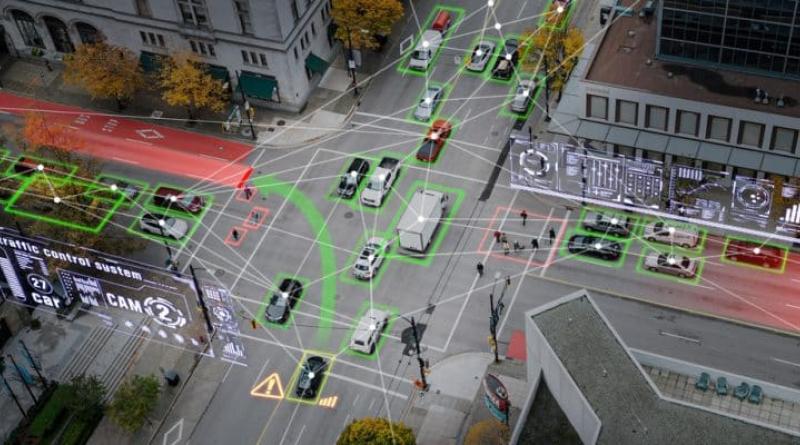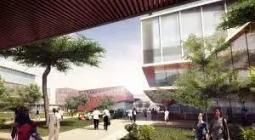SMART CITY: Cairo, Casablanca…when technology and development meet

In the cities of Cairo in Egypt and Casablanca in Morocco, technology has literally revolutionized the daily lives of city dwellers. Like Toronto in Canada or Singapore, the most connected city in the world, the digitalization of basic services (urban transport, waste management, energy efficiency of buildings) is a reality in these African capitals. The echo of this successful digital transformation is starting to resound in other cities on the continent where global warming and population growth are still obstacles to sustainable development.
Smart city, connected territory, cyber city, electronic communities. So many terms used to designate an urban area which has accelerated its economic and sustainable development with the help of technology. This concept has been very popular since the beginning of the 90s and generally dedicated to large European cities (Oslo in Norway, Barcelona in Spain) and American (New York in the United States of America) and even South-East Asia. (Singapore). Some African cities are starting to appear in this very closed list. These include, for example, Cairo in Egypt and Casablanca in Morocco.
These capitals have experimented in recent years with digital solutions which have led to the digitalization of basic services (energy efficiency, intelligent mobility, telemedicine, etc.) for the benefit of their populations respectively estimated at 20 million, 3.8 million and 3.7 million inhabitants. A demographic growth common to other African cities but which no longer necessarily rhymes with unemployment, atmospheric pollution, inequality in access to resources (water and electricity) thanks to artificial intelligence and the Internet of Things ( IoT ).
Electronic management of waste and road transport in Casablanca
First illustration in the Moroccan economic capital. Since 2015, Casablanca has been the first African metropolis to have joined the network of 25 smart cities selected by the Institute of Electrical and Electronics Engineers (IEEE) based in the United States of America. The red city administered by Nabila Rmili is one of the pioneers on the continent to experiment with remote management of road traffic. It is a system made up of 760 surveillance cameras connected to 220 kilometers of optical fiber which simultaneously makes it possible to control traffic and strengthen security within commercial buildings.
And that's not all. In Casablanca, geolocation and on-demand driver solutions have quickly spread over time well before other cities in the Sherifian kingdom such as Rabat. This is the case of the legendary “iTaxi” application which since 2014 has allowed city dwellers to order a flexible driver to any destination on their Smartphones, safely and instantly. Which is also an advantage for decarbonization as it reduces the number of personal vehicles on the road.
This digital transformation is also materializing through electronic waste management. Indeed, if the neighborhoods of Casablanca are quite clean today, it is partly thanks to the famous geographic information system (GIS) used by the French multinational Suez for "controlling urban cleanliness in real time and allows users to indicate areas to be cleaned ,” as reported in a study by the International Organization of La Francophonie (OIF).
Smart meters and “smart homes” are on the rise in Cairo
Cairo, for its part, is already more advanced in terms of “smart city”. Egypt's largest city is home to companies and laboratories that compete with the world's technological giants. This is the case of the Elsewedy company which revolutionized the use of digital electricity meters in homes and institutions in the land of the pharaohs where it already has 2 million units, the majority of which are in Cairo. These devices, which optimize energy consumption and reduce electricity bills, were also delivered to the city of Lyon in France. But Elsewedy's biggest subscribers will ultimately be the inhabitants of Brazzaville since from 2022 the energy company has signed with the Congolese authorities to install “a factory for manufacturing prepaid electricity meters” there.
The smart city of Cairo is also “smart homes”, these mobile applications which allow remote control of a building. Concretely, the owner of a house can check from his workplace whether the lights are off in the bedrooms or control his domestic heating. This is one of the reasons why the most populous metropolis in Africa (after Lagos) was ranked 106th in the “Smart City Index Report” carried out by the International Institute for Management Development (IMD) in Lausanne in Swiss. This rank is not the least since in this ranking Cairo is far ahead of Bogotá (129th ) in Colombia and São Paulo (130th ) in Brazil.
From real to virtual: bridging the digital divide
Like Casablanca and Cairo, other cities are beginning to grasp the urgency of combining digital technology with sustainable development. This is the case in sub-Saharan Africa where the Plateau commune in Abidjan has begun its digital transformation. The first phase in 2022 consisted of a virtual representation of the territory as “it exists today and how it could evolve in the future”, according to Dassault Systems which is implementing the project. The French company specializes in design software and 3D (three-dimensional) modeling.
Alongside this technological approach which should make it possible to guide urban development choices to improve the quality of life of populations, other municipalities, particularly in Namibia, favor the thorny issue of access to digital connectivity which is the first step towards a smart city. In Oranjemund, located 826 kilometers from the capital Windhoek, local elected officials are currently focusing on the availability of optical fiber. Thus, the City Transformation Agency (OMDis) and the municipality of Oranjemund jointly launched the “Oranjemund Core Fiber Connectivity” program which provides for the deployment of “67.7 kilometers of optical fiber” in this mining town populated by 'around 4,000 inhabitants.
Note that only 40% of the African population is connected to the internet compared to a global average of 63%, according to the reportof the International Telecommunications Union (ITU) on connectivity in 2022. But the “Digital Solutions for Sustainable Cities in West Africa” project should soon make it possible to reverse the situation, particularly in sub-Saharan Africa. After several field studies starting in September 2024, the initiative led by the Excellence in Africa (Exaf) research center at the École Polytechnique Fédérale de Lausanne should promote the development of real “smart cities” in Abidjan in the Côte d Ivory, Bamako in Mali, Cotonou in Benin and Ouagadougou in Burkina Faso. Enough to experiment with new digital solutions, particularly to strengthen their weather systems in the face of climatic hazards (floods, drought), among others.





